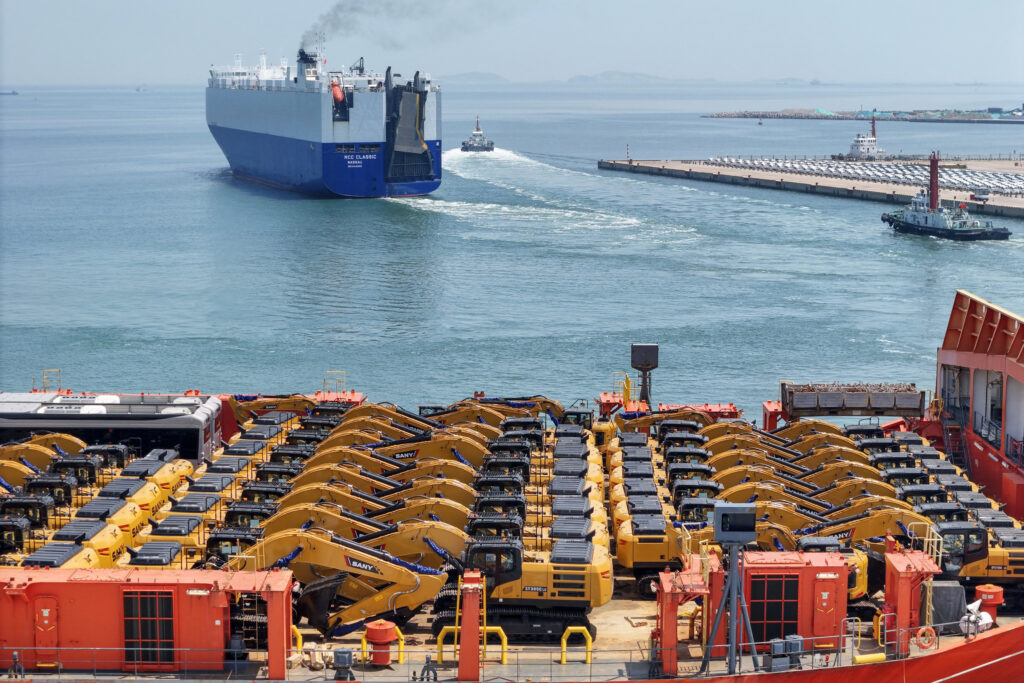Russia-China trade is reportedly being further complicated as exporters in the world’s second-largest economy seek indirect routes to skirt international sanctions imposed to hamper Russia’s invasion of Ukraine.
Russian newspaper Izvestia cited local business representatives as saying that Chinese firms, especially those exporting products subject to Western secondary sanctions such as electronics, have been seeking to ship them through third countries.
The development comes as Russian businesses continue to struggle with settling cross-border payments in China. Nearly all Chinese banks are now reported to be rejecting yuan-denominated payments from the country. Russian traders have also complained that Chinese banks have been exploiting Russia’s weakened currency by hiking up ruble-to-yuan exchange rates in recent days.
Ilona Gorsheneva-Dolunts, business advocacy group Opora Russia’s representative in China, told the newspaper last month that Chinese suppliers had asked Russian entrepreneurs to allow them to transport shipments through other countries.
Gorsheneva-Dolunts added that as Western pressure on Chinese financial institutions has mounted, even some products not on sanctions lists are getting this treatment.
Excavators for export being loaded onto a ship at Yantai Port in Yantai, China, on May 8. Russian business insiders say an increasing number of Chinese exporters are seeking to ship products to Russia via third countries in recent weeks.
AFP via Getty Images
Impaya Rus Commercial Director Alexei Razumovsky told Izvestia commissions added by agents helping facilitate logistics add to the final cost, which he predicted would lead to fewer imports of these products.
Razumovsky added that finding improved ways to deliver these goods will take time and stressed the benefits of routing them through countries on good terms with Russia for the time being.
Newsweek reached out to the Chinese and Russian Foreign Ministries via email for comment.
Many Chinese exports are already being delivered via friendly third countries, analysts say.
In June, the U.S. think tank The Atlantic Council pointed to United Nations Comtrade and Chinese government data showing that Chinese vehicles to Kyrgyzstan spiked significantly from 2021 to 2023, a trend reported in several other Central Asian countries.
This suggests some of these ended up in Russia. The article says, “While Kyrgyzstan routinely undercounted imports even prior to the war, it is not spending a quarter of its gross domestic product on auto imports from a single country.”
Russia receives Chinese vehicle-related shipments both directly and indirectly via transshipments from third countries. Additionally, Kazakhstan reported importing nearly $7.8 billion in autos from all sources in 2023, more than double what it imported in 2021.
Many Chinese vehicle-related exports notionally bound for Central Asia are, in fact, headed to Russia.
Moscow’s more isolated post-invasion economy has relied heavily on trade with the world’s second-largest economy and on China’s heavily discounted purchases of Russian oil and natural gas. Trade turnover between the neighbors jumped to a record high of $240 billion in 2023.
Since the beginning of the year, Chinese outbound trade with Russia has reportedly been erratic due to payment issues. Yuan-denominated exports to Russia dropped by 3 percent after ticking upward in May and June.
👇Follow more 👇
👉 bdphone.com
👉 ultraactivation.com
👉 trainingreferral.com
👉 shaplafood.com
👉 bangladeshi.help
👉 www.forexdhaka.com
👉 uncommunication.com
👉 ultra-sim.com
👉 forexdhaka.com
👉 ultrafxfund.com
👉 ultractivation.com
👉 bdphoneonline.com
